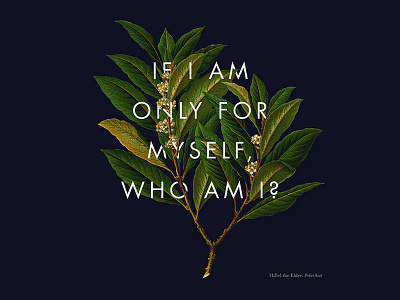The Theory of Self Actualization II
The next clause in Hillel's aphorism reads: "But if I am only for myself, who am I?" Here the word for "I" is anochi, which is a proclamation of intimate nearness between the speaker and the listener. It is an "I" that encompasses "others," and is thereby infinitely more whole.
We cannot stay within the isolated ego. We must start with the self (ani), but then move out into the world of others. By so doing, we free them and ourselves from bondage and reveal a greater self (anochi). It is a self that is simultaneously a part of a greater whole.
There is a unique "I" in the universe and it has only been entrusted to one human being: you. If that unique "I" does not somehow find expression, then the world will never know it. A precious unique "I" has failed to be experienced. That is a tragedy.
However, once that "I" has discovered and learned to express its individuality, it needs to take the next step and bring it out into the world. Each of us has something unique to contribute and no one else can bring it into the world. (Adapted from "Me, Myself and I: Ethics of the Fathers" by Yaakov Astor and Benyamin ben Esther on Aish.com)

